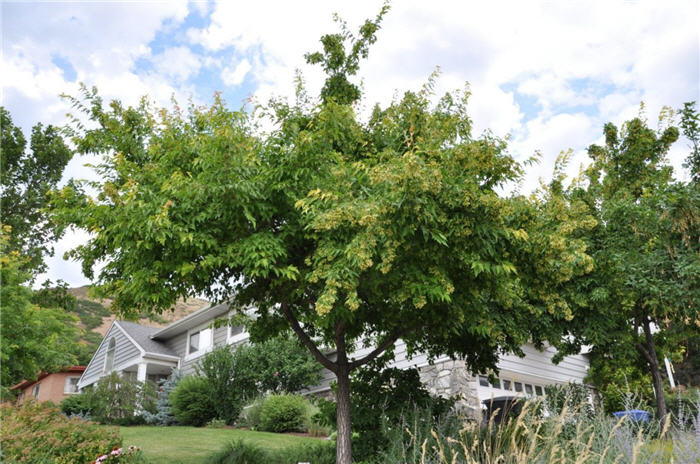| Botanical Name: Acer ginnala | |
| Common Name: Amur Maple |

-
Anatomy
-
Culture
-
Design
Plant Type
Tree, Shrub
Height Range
12-25'
Flower Color
Yellow
Flower Season
Spring
Leaf Color
Green, Dark Green
Bark Color
Brown, Grey
Fruit Color
n/a
Fruit Season
n/a
Sun
Full, Half, Shade
Water
Medium
Growth Rate
Moderate
Soil Type
Sandy, Clay, Loam, Rocky, Unparticular
Soil Condition
Average, Rich, Poor, Well-drained, Dry
Soil pH
Neutral, Basic
Adverse Factors
n/a
Design Styles
Formal, Japanese, Woodland
Accenting Features
Fall Color, Multi-trunk Tree
Seasonal Interest
Spring, Fall
Location Uses
Background, Shrub Border, Parking Strip, Patio, Raised Planter
Special Uses
Hedge, Screen, Mass Planting, Shade Tree, Small Spaces
Attracts Wildlife
n/a
Information by: Stephanie Duer
Photographer: Connon Nursery
Photographer: Connon Nursery
-
Description
-
Notes
Amur maple is a relatively small tree or large shrub, generally multi-stemmed, with deeply lobed, palmate leaves. There is a great deal of variability due to a wide range of seed source and grafting stock. This may make it a little tough to predict size and fall color, the two characteristics that make this a stand-out selection for a smaller landscape or parkstrip. If those characteristics are very important to you, shop for plants in the fall, when you can see both it's color and judge its growth rate. Figure about 18 to 25 feet tall and wide.
Grow in full sun to bright shade in any well-drained soil. Excessive moisture may cause crown rot or the bark to split. Prune selectively to shape and control size (see guides); shearing will cause lots of twiggy growth at the tips and eventually lead to a hard, dense branching (imagine a box with leaves) which in turn encourages pest and disease problems. If autumn color is critical, or you want a better sense of mature size, select one of the many named cultivars.